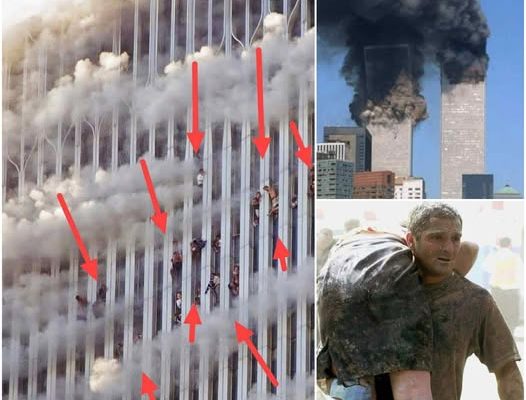Introduction: A Day That Altered History
On September 11, 2001, the world witnessed a tragedy that changed history in an instant. What began as a calm, sunny Tuesday morning in New York City soon turned into a breaking story that would leave an indelible mark on humanity. The attacks on the World Trade Center and the Pentagon not only cost thousands of lives but also redefined global security, reshaped politics, and left emotional scars that continue to impact families, communities, and nations 24 years later.
Today, nearly a quarter of a century after that life-altering morning, the events of 9/11 are not just history lessons—they are living memories. Survivors, first responders, families of victims, and everyday citizens continue to carry stories of courage, resilience, unanswered questions, and painful reminders of loss. As the world reflects on the 24th anniversary, it becomes clear that remembering 9/11 is about much more than tragedy—it is about understanding its lasting influence on lifestyle, health and safety, education, finance, technology, and community resilience.
A Morning That Began Like Any Other
On that September morning, New Yorkers were commuting to work, children were heading to school, and the city’s skyline glistened in the sunlight. For most, it was a day filled with routine—until everything changed within minutes. Two planes crashed into the Twin Towers, and what followed was chaos, confusion, and fear unlike anything most had ever experienced.
For many Americans, the images broadcast live on television became etched into memory: the towers burning, people running through ash-covered streets, firefighters rushing into danger, and the skyline transformed forever. The breaking news quickly became global news, uniting the world in shock and grief.
Human Stories Behind the Headlines
While history books often focus on the broad events of 9/11, it is the human stories that carry the deepest emotional weight. Families were torn apart, communities mourned their loved ones, and first responders displayed extraordinary courage in the face of unimaginable danger.
Acts of Courage and Sacrifice
Amid the devastation, ordinary people became heroes. Firefighters, police officers, paramedics, and countless volunteers risked their lives to save strangers. Some carried the wounded through the streets, while others guided survivors down smoke-filled stairwells. Stories of bravery emerged from every corner of the city—stories that continue to inspire future generations about resilience, courage, and the strength of community support.
Families Left Behind
The attacks left thousands of children without parents, parents without children, and spouses without partners. Many families describe the pain as a wound that never fully heals. Yet, in the years since, many of these families have turned grief into action, establishing foundations, scholarships, and community initiatives in memory of their loved ones. These efforts remind the world that even in tragedy, hope and positive impact can emerge.
The Psychological and Emotional Toll
The legacy of 9/11 is not only measured in lives lost but also in the invisible struggles that survivors and families continue to face.
Post-Traumatic Stress and Grief
Many survivors and first responders live with post-traumatic stress disorder (PTSD), recurring nightmares, and painful flashbacks. Families often describe living with “ambiguous grief”—a sense of mourning without full closure, particularly when loved ones’ remains were never recovered. The emotional burden has required ongoing counseling, community support, and public awareness campaigns about mental health.
Community Healing and Support
In the years that followed, communities across the United States rallied to provide comfort and resources to those most affected. Support groups, memorial events, and mental health services became essential parts of recovery. These collective efforts highlight the importance of empathy, awareness, and the role of community in helping individuals rebuild their lives.
A Nation and a World Transformed
The attacks reshaped not just New York but the entire globe. The changes touched nearly every aspect of modern life, from travel and technology to education and global politics.
Security and Travel
Airports became symbols of a new era of safety. Stringent security checks, identification requirements, and advanced scanning technologies became standard practice worldwide. While these measures were introduced to protect lives, they also changed the way people experience travel, turning airports into fortresses of precaution.
Global Politics and Policy
The aftermath of 9/11 led to international conflicts, expanded government powers, and long-term debates about security versus privacy. Surveillance programs, counterterrorism strategies, and new legislation reshaped global relations and raised important questions about freedom and safety.
Education and Awareness
In classrooms across the world, 9/11 became part of history lessons, teaching young people about resilience, courage, and the consequences of extremism. Schools now focus not only on the facts of that day but also on the broader lessons of unity, diversity, and the importance of building communities based on peace and understanding.
The Role of Media and Technology
The attacks of 2001 occurred at a time when technology was rapidly advancing, but social media was not yet dominant. News coverage relied on live television and radio, with images broadcast around the globe in real time.
The Power of Media
Those who watched the events unfold live recall the emotional intensity of the moment—an experience that united millions in collective grief. In the years since, documentaries, books, and digital archives have preserved stories for future generations, ensuring that the emotional story of 9/11 is never forgotten.
Technology in Today’s World
Fast forward to 24 years later, and technology now plays an even larger role in remembrance. Virtual memorials, digital storytelling, and online education platforms allow families, survivors, and communities worldwide to honor victims and share inspirational life lessons from that day. Social media trends around each anniversary keep the conversation alive, ensuring younger generations engage with the history in meaningful ways.
Unanswered Questions and Ongoing Debates
Even after nearly a quarter-century, 9/11 continues to raise questions. Some debates focus on structural engineering, security lapses, and the release of government documents. While experts have provided extensive reports, the scale of the tragedy has left room for speculation, unanswered questions, and calls for transparency.
The Importance of Inquiry
Healthy debate and public inquiry are part of honoring history. By asking questions, societies ensure that lessons are learned, mistakes are not repeated, and justice remains a priority. While conspiracy theories often circulate, what remains clear is that the need for truth and accountability is vital in building trust and resilience for future generations.
Inspirational Life Lessons from 9/11
Beyond tragedy, 9/11 also left behind lessons that continue to shape individuals and communities worldwide.
-
The value of community support: In the darkest hours, neighbors, strangers, and first responders came together, proving the strength of unity.
-
The importance of resilience: Families who lost everything have built legacies of hope, showing that even after unimaginable loss, it is possible to create a positive future.
-
The reminder of impermanence: The fragility of life encourages people to prioritize love, compassion, and kindness in everyday living.
-
The role of courage: From firefighters climbing the towers to volunteers offering water on the streets, courage appeared in countless forms.
Memorials and Remembrance Today
Across the United States and around the world, memorials serve as physical and emotional reminders of 9/11.
-
The 9/11 Memorial & Museum in New York City honors the victims and tells their stories through powerful exhibits.
-
Annual ceremonies bring families, survivors, and leaders together to read names, share reflections, and observe moments of silence.
-
Community events and vigils ensure that the legacy of 9/11 is not confined to one city but shared across the globe.
These memorials and traditions provide comfort, motivation, and inspiration, reminding people everywhere of the importance of remembering history with dignity and compassion.
Looking Forward: Building a Future with Awareness and Hope
As the world marks 24 years since 9/11, the challenge lies not only in remembering the past but also in shaping a future that learns from it.
Building Stronger Communities
By fostering education, cultural understanding, and community engagement, societies can reduce division and promote peace. Parenting, education, and lifestyle choices that prioritize empathy and resilience ensure younger generations carry forward the right lessons.
Health, Safety, and Preparedness
The tragedy highlighted the importance of emergency preparedness, health awareness, and coordinated safety efforts. Today, organizations and governments continue to develop strategies to protect lives while balancing freedom and security.
A Legacy of Courage
Perhaps the most powerful way to honor the victims is to live with courage, compassion, and a commitment to building a better future. The families, survivors, and heroes of 9/11 continue to show that even in the face of overwhelming loss, humanity has the strength to rebuild.
Conclusion: Why We Must Never Forget
Twenty-four years later, the memory of 9/11 is still raw, emotional, and deeply personal for millions of people. It is more than a historical event—it is a reminder of vulnerability, resilience, and the power of human spirit.
As we honor the victims, the heroes, and the families left behind, we also embrace the responsibility to carry forward the lessons of that day. By remembering with compassion, asking important questions, and building communities rooted in empathy, we ensure that the legacy of 9/11 is not just about loss, but about courage, unity, and the determination to create a safer, more compassionate world.



